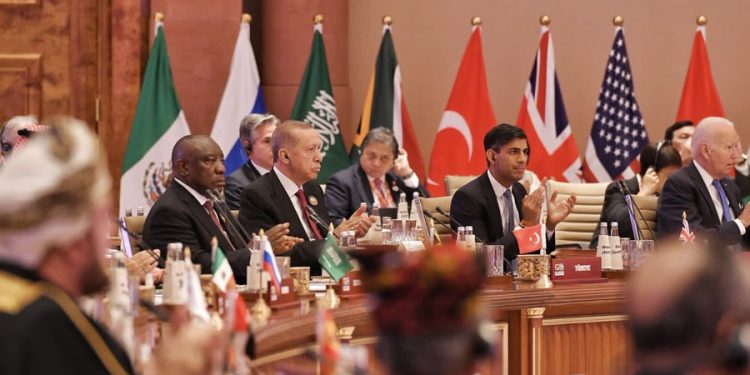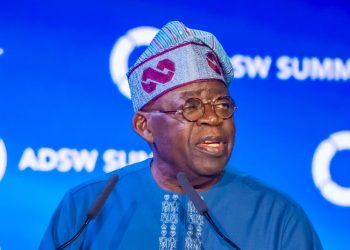At the inaugural session of the G-20 Leaders’ Summit in New Delhi on Friday, saw a monumental moment unfolded as India’s Prime Minister Narendra Modi invited the African Union Commission to formally occupy the Organization’s seat as a permanent member.
Modi who successfully championed the inclusion of the African Union as a permanent member of the influential G20 grouping said, “India’s G20 Presidency has become symbol of inclusion, of ‘sabka saath’ both inside and outside the country.
“In more than 60 cities of the country, more than 200 meetings have taken place. With the sense of ‘Sabka Saath’, India had proposed that the African Union be granted permanent membership of G20. I believe that all of us agree to this proposal.”
Nigerian President, Bola Ahmed Tinubu in his address at the Summit, welcomed the decision, saying it “opens opportunities for future membership of the group in a manner that reflects the relative balance of power and inclusiveness of humanity as One Family”.

South African President, Cyril Ramaphosa on his social media platform also welcomed the decision, said, “As African and other developing economy countries, we face the task of meeting our climate commitments in midst of significant developmental challenges like poverty, inequality and unemployment”.
Ramaphosa emphasized that Climate change, environmental degradation, unsustainable consumption and production and resource scarcity are challenges that can only be addressed collectively and with a great deal of solidarity.
AU Chairperson, Moussa Faki Mahamat has also welcomed the African Union’s entry into the G20 as full member. “This membership, for which we have long been advocating, will provide a propitious framework for amplifying advocacy in favor of the Continent and its effective contribution to meeting global challenges”.

However, there is no official confirmation of changing the name to G21. The current members of the G20 represent about 85% of global GDP, more than 75% of world trade and about two-thirds of the global population.
The AU’s inclusion is expected to give African countries a greater say in tackling global challenges such as climate transition, debt restructuring and sustainable development.
This development not only strengthens the G20’s representation but also underlines the importance of fostering cooperation between major world economies and emerging continents, bringing diverse voices to the table.












